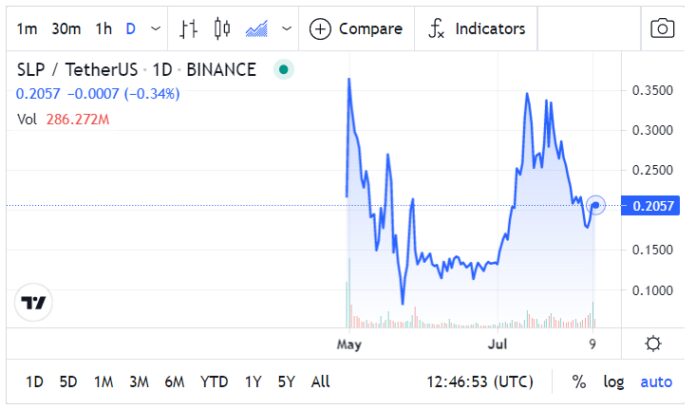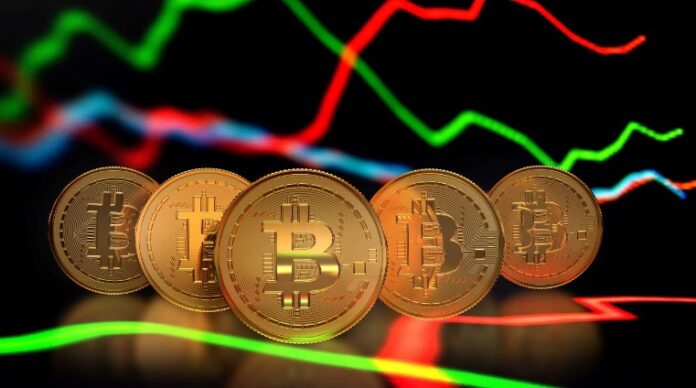The economy relies on a variety of different factors to keep it going. This works in either direction. If a piece of good news causes the stock market to rally, this will have a positive effect on the economy. Likewise, if there’s bad news, this can have a ripple effect and result in a poor economic outlook. This can vary from news such as the outbreak of war to rising oil prices or news specific to the economy, such as rising inflation or interest rates.
Analysts see the relationship between cryptocurrency markets and economic markets as coincident indicators. This means that the economy and cryptocurrency markets will often mirror each other. However, the economy is not affected by any significant changes in the cryptocurrency market. Generally speaking, if cryptocurrency prices are up, such as the Ethereum, Cardano or Smooth Love prices, this will signal that the overall economy is doing well.

Suppose people have money to invest in cryptocurrency. This means that disposable income is available within that nation, or conditions are favorable, so they are more likely to spend money on a more volatile investment. If the market is low or there is a rise in interest rates, traditionally, investors will go for more reliable investments such as savings accounts and bonds.
When disposable income is available, that means the price of the central currency is solid and the economic forecast is good. This will usually result in more money coming into the cryptocurrency space. We saw this example last year when stimulus checks resulted in record growth in the cryptocurrency sector. This wasn’t the only factor but it was critical as it drew many retail investors, who otherwise may not have become involved into the space as explained by economics experts from Ekonomi Haberleri.
However, the stock market and economy all benefitted simultaneously, so the correlation between the value of crypto and a positive economy is a little tenuous. It can move in the opposite direction, as proved in the past and easily identified on charts. If a country’s economic forecast is poor, this will result in people spending less money or their currency having less buying power. This has a direct effect on the cryptocurrency market. If there’s a poor economic forecast, such as high inflation or high-interest rates, cryptocurrency investors will not want to enter a risky market.
This year has seen relatively bleak forecasts in major economies worldwide, such as the US and Europe. This has caused a knock-on effect on the cryptocurrency market, which has retracted quite sharply in value. Cryptocurrency goes through volatile price movements, which is why people consider it a good investment market. This is apparent when you check the graph for all assets, including the Bitcoin price and the Smooth Love price. However, cryptocurrency is widely considered the most dangerous asset to invest in, and you must approach it cautiously if you enter this space. You could have plenty of market knowledge, perform the right research, and still lose money. This is because your capital is always at risk. Unfortunately, the markets are extremely unpredictable – even professional traders can lose money because of the number of factors they need to consider.
Another reason there isn’t much of a correlation is that there is no connection between cryptocurrency and the wider economy. What we mean by this is that if there’s a huge stock market crash, this will cause the world’s biggest companies to lose money. This then results in job losses and financial damage for shareholders. The knock-on effect can be devastating if it bleeds into the supply chain, and has a nasty ripple effect.

Cryptocurrency is a standalone market, so while there are some institutional investors, there is nowhere near the same level of investment that you would see in the stock market or foreign currency exchanges. Suppose the price of Bitcoin drops – in that case, the wider economy isn’t affected, as these assets are not huge corporations and businesses with thousands of employees and shareholders.
For example, the housing crisis in 2008, which saw the collapse of some of the biggest banks in America, caused an incredible amount of damage to the economy. These repercussions are still being felt today, and they wiped nearly $5tn off global markets. If it wasn’t for widespread intervention from major central banks and governments across the globe, the whole foundation of society could have collapsed.
The crypto market has crashed spectacularly before. Bitcoin has retracted 75% from its market highs in 2024. Enthusiasts, analysts and investors are still very optimistic about the market and the future of digital assets in the long run. While the sharp retractions that happened in 2013 and 2017 did not have any noticeable impact on many nations’ economies, the recent retraction has happened during deep global economic uncertainty. Therefore, it is more than likely that the economic outlook has pulled down the cryptocurrency market sentiment, not the other way around.
However, looking towards the future, if cryptocurrency becomes a bigger market and starts to embed itself further into the economy via mass adoption, it is highly likely that the crypto value will increasingly affect the economy.
So, in a nutshell, cryptocurrency requires favorable market conditions, including a strong economy. It also needs to see large investments and positive sentiment to continue upward. The economy is a standalone entity and is the driving force behind whether or not cryptocurrency markets are presented with a climate in which they can flourish. Cryptocurrency markets need a strong economy to survive, whereas the economy doesn’t need strong cryptocurrency markets to flourish.

They merely co-exist with each other at the moment. As we have touched on in this article today, this could change in the long term. Who knows where blockchain technology and cryptocurrency will be two decades from now? It could still be on the fringes of society, or it could play an integral role in the technology that begins to shape our future world.









